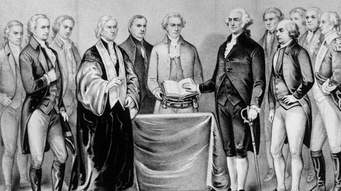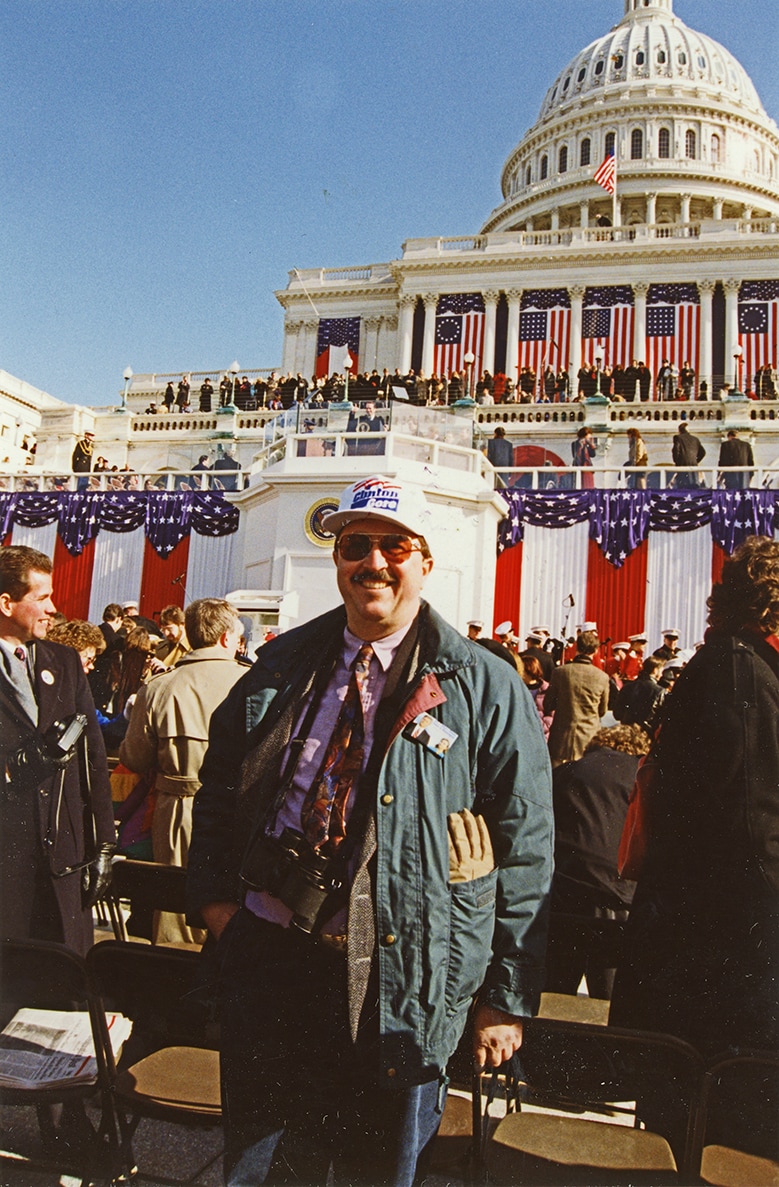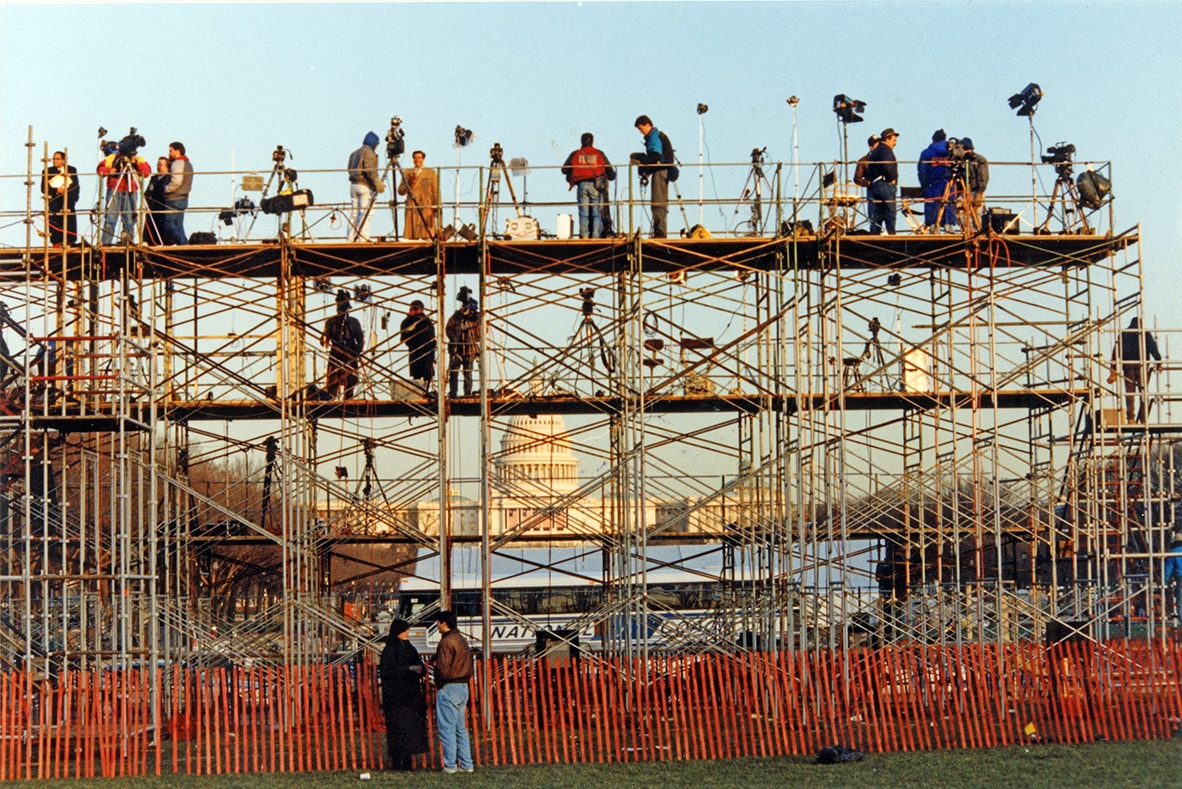|
By Ray Smock Inauguration Day in the United States of America is always a remarkable event, but it is even more so when the incoming president is of the opposite political party from the incumbent president. What makes the day so remarkable is that we make a celebratory occasion about the peaceful and orderly way we accept the will of the people in electing each new president. In so many countries in the world power changes hands in coups or with troops in the streets and clashing armies. It is not that our inaugurations have not been free of anxiety and high drama, or that there haven’t been protestors as part of the day’s events. Protest too is an essential part of democratic societies and the fact that we tolerate and even encourage dissent, sets us apart.
The only Constitutionally mandated part of an inauguration is the taking of the oath of office by the president and vice president. The rest is for show. But it is more than just a spectacle. It is a celebration and in contentious times it is part of the healing process, a time to set aside the high passions of the campaign and bring the nation together again. Such a thing is worth celebrating with bands, entertainment, balls, parties, and a display of citizens from all parts of the nation. When I was Historian for the House of Representatives I used to get calls from citizens complaining that we waste too much money on the trappings of an inauguration. While there are taxpayer costs, for sure, a good portion is paid for privately. But I always answered that whatever the amount, it was money well spent to bring the country together again and to put on a show of renewal. Perhaps the most difficult inauguration in history was that of Abraham Lincoln in 1861. The nation had been fighting over slavery since the very beginning of the country. It was an unresolved issue that festered and grew worse as the nation grew and as slavery grew with it. When Lincoln was inaugurated on the East Front of the Capitol on March 4, 1861, seven states had already seceded from the Union, with more to follow. The Capitol dome was only half finished and still under construction. Lincoln won the election with only 40% of the electorate in a four-way race, but he did secure a solid victory in the electoral vote winning 18 of the 29 states and 212 electoral votes (the number required to win in that election was 152). Lincoln arrived in Washington, DC for his inauguration in secret because of rumors of a plot to assassinate him. Lincoln’s inauguration did see troops in the street, plenty of them, but none to suppress citizens, they were there to protect the new president. Riflemen lined the roofs along Pennsylvania Avenue. Lincoln told friends he expected bullets might fly. But it went off peacefully with troops surrounding the big tent where the inaugural ball was held. But the war came. And the nation was plunged into four years of monstrous bloodshed. At his second inauguration with the war still underway, but almost at its end, Lincoln’s words were so profound, and so written for the time and for the ages, that they are emblazoned in stone at the Lincoln Memorial. The nation was torn apart. Anger, bitterness, hopelessness, destruction were the prevailing forces in the United States in 1865, yet President Lincoln chose to speak of peace. The final words of that great speech were: “With malice toward none, with charity for all, with firmness in the right as God gives us to see the right, let us strive on to finish the work we are in, to bind up the nation's wounds, to care for him who shall have borne the battle and for his widow and his orphan, to do all which may achieve and cherish a just and lasting peace among ourselves and with all nations.”
Not all inaugural addresses have been memorable, but some have been truly inspired. Presidents try, on these occasions to speak to the nation and to the world about their vision for America. At these events presidents, have talked of war, of peace, of great plans, and they have warned us of dangers. Collectively they offer a benchmark of American history at any given time. Woodrow Wilson, who ran on keeping America out of World War I, announced that we would have to go to war after all and shake off our provincial status among nations. Harry Truman warned us of a Cold War with the Soviet Union in 1949. John Kennedy said the torch was passed to a new generation, and it was. Ronald Reagan said in 1981 that the problem with America was government. Sixteen years later Bill Clinton would pick up that theme and give it a new twist that the problem wasn’t government, but neither was government the solution. The solution to our problems was We the People. In 2009, with the dramatic election of our first African American president, Barack Obama said the question was not how small or how large government was but whether it works. He warned us about international terrorism but offered that hope was stronger than fear.
I write this posting just days before the inauguration of Donald J. Trump as our 45th president. What will he say to us? What will his inauguration say about our current place in our history? His election by any measure is among the most controversial in history. The election of 2000, the Bush/Gore contest, was one filled with protest and anxiety over contested ballots in the Florida count. That one went to the Supreme Court to be settled and even that settlement was never satisfying to many Americans because there was no Constitutional provision for that kind of settlement. I was one of those who stood outside the Supreme Court in protest of that process. Donald Trump’s election was and is legitimate in all Constitutional matters. But the anxiety levels in the nation are far higher than they were in 2000, because the election process was possibly tainted by foreign interference, by possible acts of espionage. There is additional anxiety and uncertainty because Donald Trump has no prior experience in any level of government and no military experience. We have never ever elected a person with so little experience in the areas of governance or command. His brash, confrontational style is a sharp departure from previous presidents. He is something quite different and he appears to be totally unpredictable. President-elect Trump has an opportunity to use his inauguration as presidents before him have done—to begin the healing process—to reassure the nation—to tell us his vision for America. Let’s see how well he can accomplish this important task. It will portend the future of this nation. Ray Smock is director of the Robert C. Byrd Center for Congressional History and Education at Shepherd University and served as Historian of the U.S. House of Representatives from 1983 to 1995. Comments are closed.
|
Welcome to the Byrd Center Blog! We share content here including research from our archival collections, articles from our director, and information on upcoming events.
Categories
All
Archives
July 2023
|
Our Mission: |
The Byrd Center advances representative democracy by promoting a better understanding of the United States Congress and the Constitution through programs and research that engage citizens.
|
Copyright © Robert C. Byrd Center for Congressional History and Education
|




 RSS Feed
RSS Feed
